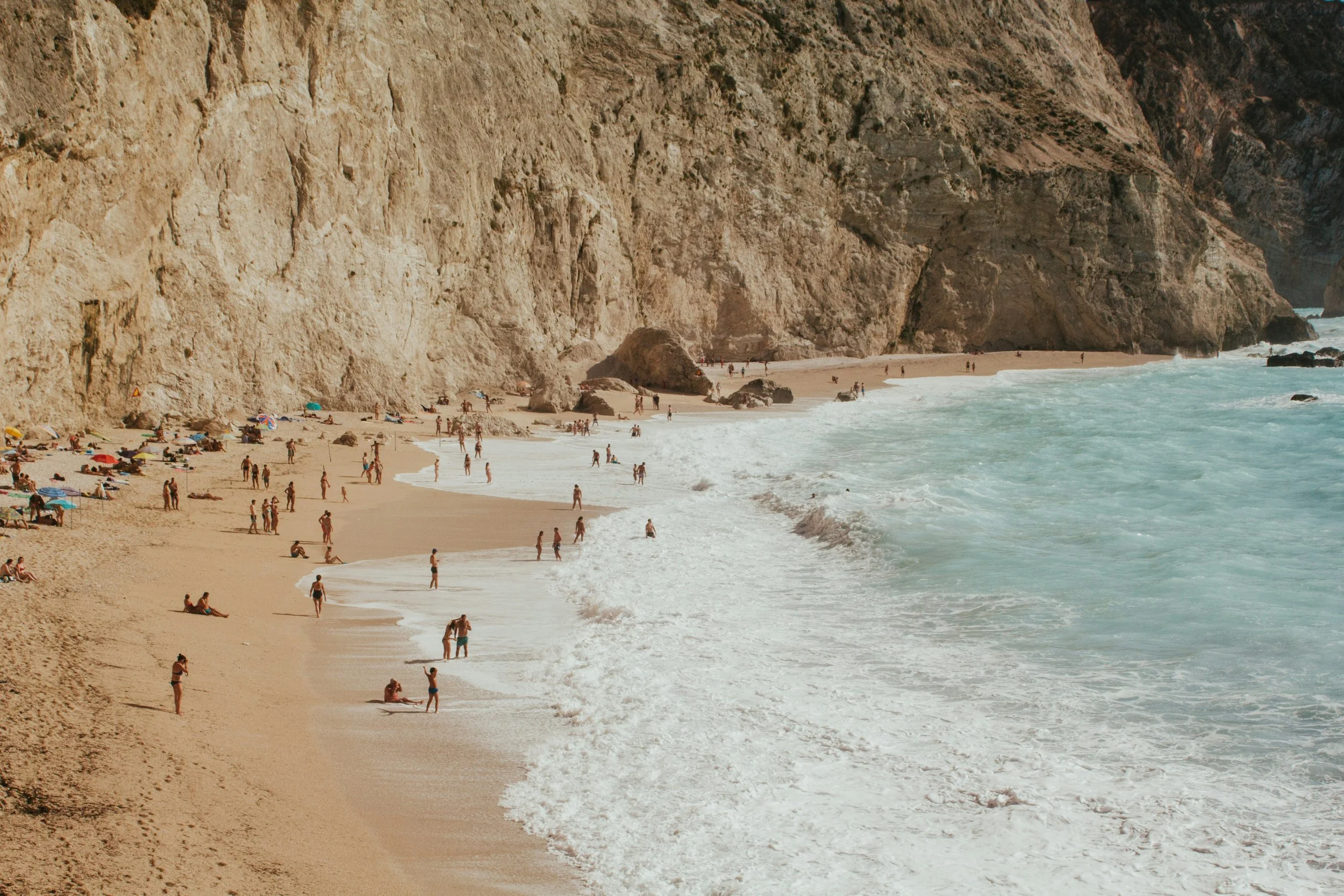Is This the End of Euro Summer as We Know It?
Greece is currently experiencing its third heatwave of the summer, with temperatures potentially reaching 45°C during the day.
Australians are rethinking their annual escape to Europe. Record heat, rising costs, and overtourism are shifting the vibe. But maybe this change is exactly what we needed.
The great Euro summer unravel
There was a time when European summer was the dream. Sun-drenched islands, long lazy lunches, warm nights with music spilling into the streets. For Australians, it meant freedom. It meant finally arriving after 20 hours of flying, ready to make up for lost sunshine back home.
But things are changing, and not in the charming, 'wasn't-this-cute' way.
This past season brought heatwaves that emptied the streets of Rome, queues stretching down the hill at the Acropolis, and more horror stories about €80 sunbeds in Mykonos than anyone asked for. Suddenly, the magic started to feel manufactured. And under all the hype, a new mood is settling in.
A quiet shift in thinking
You can feel it in conversations with friends. People aren’t booking the same cookie-cutter trips anymore. They’re questioning the crowds, the cost, and the carbon. They’re wondering if that €25 cocktail at a rooftop bar is actually worth it, or if they’d rather be at a seaside kafeneio where the owner pours you a free ouzo just for smiling.
We’re seeing a drift away from August.
Away from influencer-clogged islands and 'bucket list' landmarks that now come with mandatory reservations and a heatstroke warning, and toward something more grounded.
So, when should you travel to Greece?
Here’s a quick cheat sheet, since peak season isn’t the only option anymore. And frankly, it’s not even the best one.
Best time to travel to Greece from Australia in 2025:
April: Spring blooms, fresh seasonal food, quiet ferries, and cool evenings. Ideal for walking trails, villages, and wildflower-filled ruins.
May: Warm enough to swim, but still peaceful. Taverna tables are easier to come by, and locals aren’t burnt out by tourism yet.
September: The ultimate sweet spot. The sea is at its warmest, grapes are being harvested, and summer's chaos has passed.
October: Quieter, cooler, and deeply local. Ideal for the Peloponnese, mountain towns, and slow travel without the noise.
Avoid mid-July to late August if you can. That’s when prices spike, water becomes scarce, and Greece’s natural rhythm gets drowned out by demand.
Overtourism is changing everything
Overtourism in Greece is no longer a background issue.
On islands like Santorini and Corfu, short-term rentals are pricing out residents. On tiny islands with limited infrastructure, luxury resorts and infinity pools are putting real pressure on water and energy resources. It’s not just about the crowds, it’s about the impact.
Tourists are waking up to this.
While nobody wants a lecture on holiday, there’s a rising awareness of where money is going and how choices shape a place.
For example, booking a family-run guesthouse in Ikaria, where dinner is made with vegetables from the owner’s garden, has a different effect than staying at a corporate resort that shuts down come September.
What Cycladic Spaces stands for
At Cycladic Spaces, we’re not here to push viral lists or glorify luxury stays with drone footage and hashtags. We want to show you the Greece that still breathes. The one locals know, love, and live in year-round.
We share stories from islands that aren’t trying to be the next big thing. We visit villages where you can spend an afternoon with a ceramicist, or learn how to cook wild greens from someone’s aunt. We eat seafood caught that morning and tomatoes that taste like the sun, and we don’t tell you to go to Mykonos unless you really, truly want to.
Travel should feel like a connection, not consumption.
A different kind of Greek summer
When you stop chasing the version of Greece that’s designed for tourists, you open the door to something quieter and far more rewarding.
You find magic in the stillness. In the slower ferry, the handwritten menu, the child playing barefoot in a square at midnight.
You walk through ruins at golden hour with no one else around. You eat a spoon-sweet made by a local grandmother who just wanted to share something from her home.
This is not the Greece of TikTok reels and €40 salads. It’s something better.
It’s not gone. It’s just waiting for you to look past the noise.
